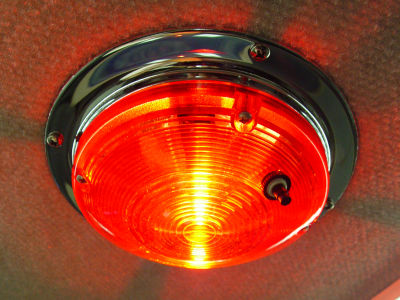``Technology to monitor employees' brain waves'' will be introduced at the Davos conference, and the speaker claims that ``a variety of problems in the workplace can be solved by monitoring brain waves''

by
At the World Economic Forum held in Davos , Switzerland from January 19, 2023, legal ethicist Nita Farahany gave a lecture on technology that allows companies to monitor the brain waves of their employees. expressed the view that it will become common in the future.
World Economic Forum speaker touts technology that allows your boss to monitor your brain activity - LifeSite
https://www.lifesitenews.com/news/world-economic-forum-speaker-touts-technology-that-allows-your-boss-to-monitor-your-brain-activity/
In a speech at the World Economic Forum, Farahani said, ``A device that reads the mind by monitoring brain waves is not a futuristic device.It uses wearable devices such as headbands, hats, earphones, and headphones that are equipped with sensors that detect brain waves. 'By doing so, we have already created technology that can detect human emotions such as happiness, sadness, and anger.' According to Mr. Farahany, by monitoring brain waves, it is possible to decipher faces, simple shapes, numbers, passwords, etc. that you are thinking of in the future.
@WEF paints the picture of a terrifying future in which our brain activity is tracked and monitored at work... pic.twitter.com/lACkTQDgQD
— LifeSiteNews (@LifeSite) January 20, 2023
In a panel discussion held the next day, January 20, 2023, Farahany talked about mind-reading devices being integrated into multifunctional devices such as earphones, and predicted that these technologies would become commonplace in the near future. I predicted that.
``More than 5,000 companies around the world are already monitoring employees' brain waves to determine fatigue levels,'' Farahany said, adding, ``We want a society where brain wave monitoring is commonplace.'' 'You should,' he argues.
Using the example of a long-haul truck driver who falls asleep while driving and causes a fatal accident, Farahani emphasized, ``Brain wave monitoring has the potential to solve problems that can occur in the workplace.'' According to Farahany, wearable devices with built-in electrical sensors could have prevented such accidents by measuring brain waves and alertness.

In recent years, cars are often equipped with accident prevention technologies such as automatic braking and lane departure prevention support systems , but Farahany says, ``In addition to these accident prevention technologies, it is possible to intervene more quickly and accurately.'' It is essential to introduce a device that can monitor brain waves.'
In addition, Mr. Farahany introduces a brainwave monitoring device under development called the haptic scarf, developed by the Massachusetts Institute of Technology, which sounds a buzzer to alert people when their concentration begins to break.
Wearable neurotech can now go so far as to detect what you are paying attention to, says @NitaFarahany . She predicts we may soon use this to help people snap to attention in the workplace, such as with the MIT Media Lab's haptic scarf that “buzzes ” when your mind wanders. #WEF pic.twitter.com/MJAFDBa1BP
— LifeSiteNews (@LifeSite) January 20, 2023
'While brainwave monitoring has extraordinary potential in the field of neurotechnology, it also has the potential to be the most oppressive technology ever introduced to society as a whole,' Farahany said. He acknowledged that brainwave monitoring by companies could potentially lead to oppression of employees.
Farahany said, 'The potential uses of devices that read brain waves will increase as AI and sensor capabilities improve, but recognizing the right to cognitive freedom and updating existing international human rights instruments will help improve privacy.' We need protection against infringement.” 'By taking these steps, we expect employers to respect employees' autonomy and stop monitoring their employees' emotions.'
Klaus Schwab, founder of the World Economic Forum, predicts that ``chips implanted in the brain to read brain waves will become widespread over the next 10 years.'' In addition, Elon Musk, CEO of Tesla and Twitter, founded Neuralink and is researching brain implant technology that will enable telepathic communication within 5 to 10 years from 2016.
Related Posts:
in Science, , Posted by log1r_ut







